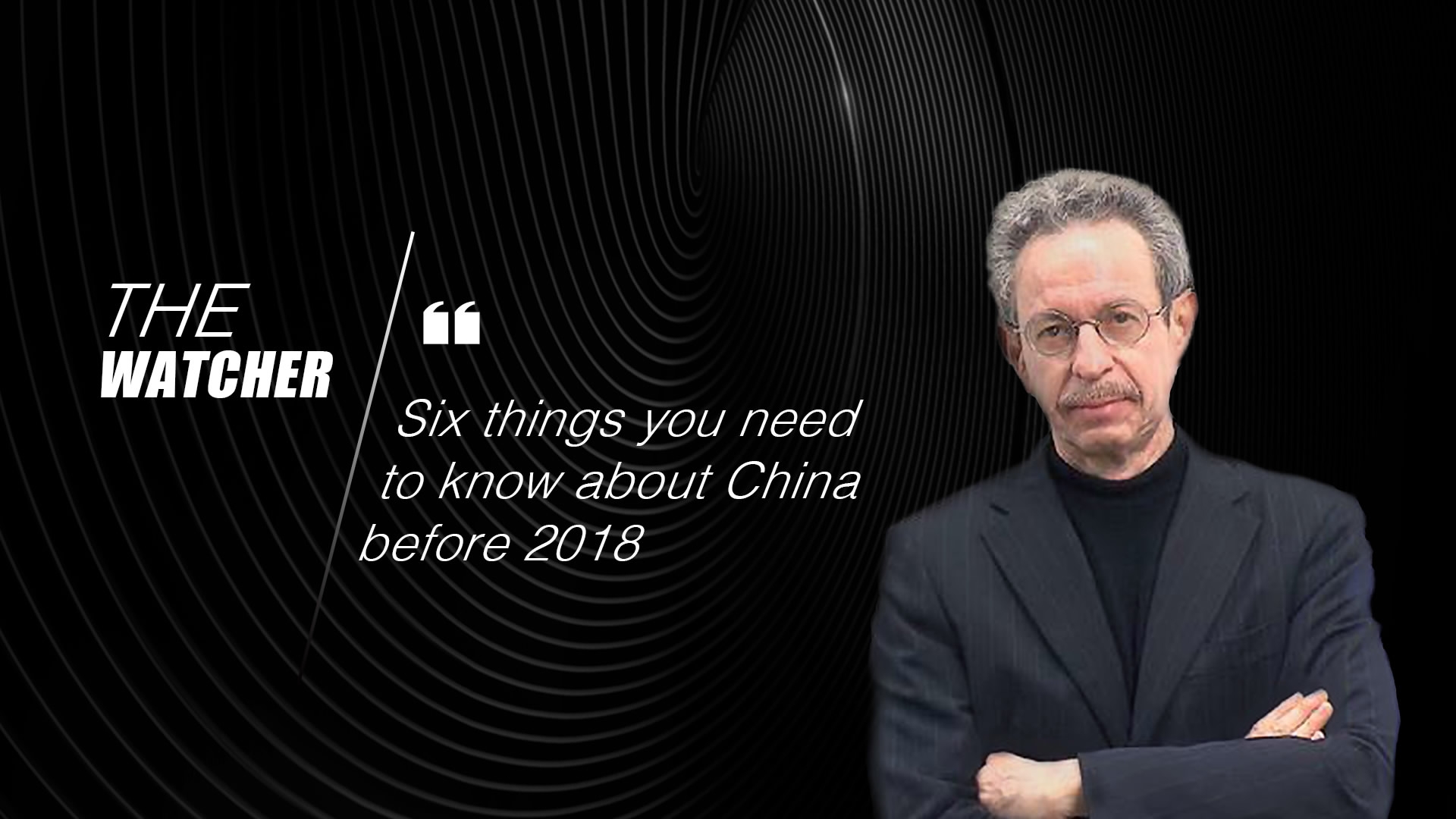
Politics
07:55, 30-Dec-2017
Six things you need to know about China before 2018
By Robert L. Kuhn

I’m Robert Lawrence Kuhn and here’s what I’ve been watching – 2017, what a year in China! I’ve seen it all, up close.
In March, the annual “Two Sessions” legislature and advisory body. A highlight was adopting the draft general provisions of civil law, a step closer to a long-needed unified civil code.
In May, the first “Belt and Road Summit” was the diplomatic highlight of the year: some 110 nations participated, including 29 heads of state. The goal is no less than transforming the economic structure of the developing world: revitalizing globalization, alleviating poverty and reducing severe imbalances.
In July, China celebrated the 20th anniversary of Hong Kong’s repatriation to the motherland. Hong Kong has flourished: its way of life preserved, its economic growth dynamic. But times change. With Shanghai and Shenzhen rising, and with some saying the “One Country, Two Systems” principle is eroding, Hong Kong faces new challenges.
In August, the People’s Liberation Army, the PLA, celebrated its 90th anniversary. In a move both practical and symbolic, the PLA established its first overseas base in Djibouti, strategically situated at the Horn of Africa. What is the PLA’s long-term plan for operating overseas? What will be the impact of PLA modernization and reform?
Also in August, China hosted the BRICS Summit. The five BRICS countries – Brazil, Russia, India, China, South Africa – have increasing impact on global economics and politics, but does BRICS as an organization make sense? China certainly thinks it does.
The highlight of the year came in October - the 19th National Congress of the Communist Party of China. I witnessed history and see five highlights.
First, Xi Jinping’s name was written into the CPC Constitution – “Xi Jinping Thought on Socialism with Chinese Characteristics for a New Era”. Xi is now, officially, the overarching creator and arbiter of political thought, and combined with his designation as “Core” of the CPC, Xi is now the undisputed, unimpeded leader with singular authority.
Second, the new primary “contradiction’ in China’s New Era is between “unbalanced and inadequate development and the people's ever-growing needs for a better life,” which includes democracy, rule of law, fairness and justice, security, and a better environment.
Third, the Party’s increasing role in leading the country is unequivocal, and the increasingly strict governance of the Party, by reforming and purifying itself, is unambiguous. Moreover, the anti-corruption campaign, not only continues. but will be enhanced.
Fourth, the New Era sees China moving closer to center stage of the world and making greater contributions to mankind, offering “Chinese wisdom” and “Chinese solutions” for world problems.
And fifth, I watched the new senior leaders of China, the seven members of the new Standing Committee of the Political Bureau of the CPC, walk out on stage, ending months, years, of speculation and rumor. Because everything in China reports to a Politburo Standing Member, and because of the Party’s principle of collective leadership, their personalities, composition and balance determine the vision, strategies and policies that shape China. This remains true today, but this is less true today.
It is hard to overstate the significance of Xi Jinping’s name written into the Party Constitution, thus inscribing into perpetuity Xi’s predominant status and assuring his preeminence in the country’s political life. Six of the seven new leaders have run provinces or major municipalities. (Personally, over the years, I’ve met with five of the seven.)
2017 was a good year for China. But past success, as they say, does not guarantee future success. Every year has new challenges. Big ones, I suspect, lie ahead.
The world is watching. So am I. I’m Robert Lawrence Kuhn.
(Dr. Robert Lawrence Kuhn is a CGTN anchor, a public intellectual, international corporate strategist and investment banker.)

SITEMAP
Copyright © 2018 CGTN. Beijing ICP prepared NO.16065310-3
Copyright © 2018 CGTN. Beijing ICP prepared NO.16065310-3